Search
Search Results
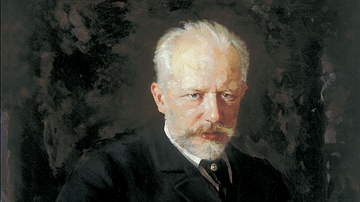
Definition
Pyotr Ilyich Tchaikovsky
Pyotr Ilyich Tchaikovsky (1840-1893) was a Russian composer most famous for his symphonies, the ballets Swan Lake, The Sleeping Beauty, and The Nutcracker, and the operas Eugene Onegin and The Queen of Spades. A composer of innovative and...
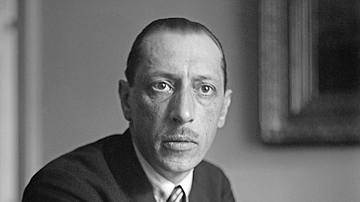
Definition
Igor Stravinsky
Igor Stravinsky (1882-1971) was a Russian composer best known for his works for the stage, such as the ballets The Firebird, Petrushka, and the groundbreaking The Rite of Spring. The modernist composer lived in Switzerland, France, and then...
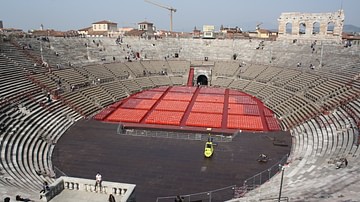
Definition
Amphitheatre
An amphitheatre was a structure built throughout the Roman empire where ordinary people could watch such spectacles as gladiator games, mock naval battles, wild animal hunts, and public executions. Usually oval in form, the largest examples...
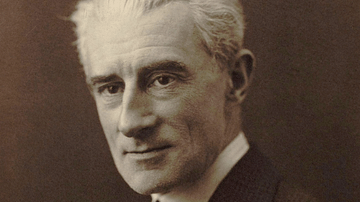
Definition
Maurice Ravel
Maurice Ravel (1875-1937) was a French composer of classical music best known for his innovative piano pieces and orchestral works like Bolero and Daphnis et Chloé. Sometimes called an 'impressionist' composer, much was made of a practically...
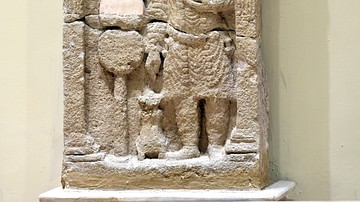
Definition
Parthian Culture
Stretching between China and India in the east to the Mediterranean in the west, Parthia ruled over one of the widest expanses of empire in its time and Parthian culture flourished for 500 years (247 BCE to 224 CE). While known for their...

Definition
Parthian Art
Parthian art flourished within the Eurasian cultural corridor from the late hundreds BCE to the early 1st and 2nd centuries CE. With the Parthian Empire (247 BCE - 224 CE) stretching from India and China in the east to the Mediterranean shores...
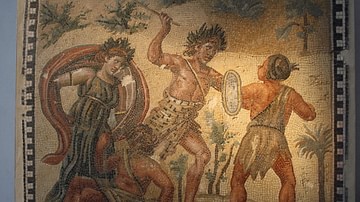
Article
Roman Games, Chariot Races & Spectacle
If there was one thing the Roman people loved it was spectacle and the opportunity of escapism offered by weird and wonderful public shows which assaulted the senses and ratcheted up the emotions. Roman rulers knew this well and so to increase...